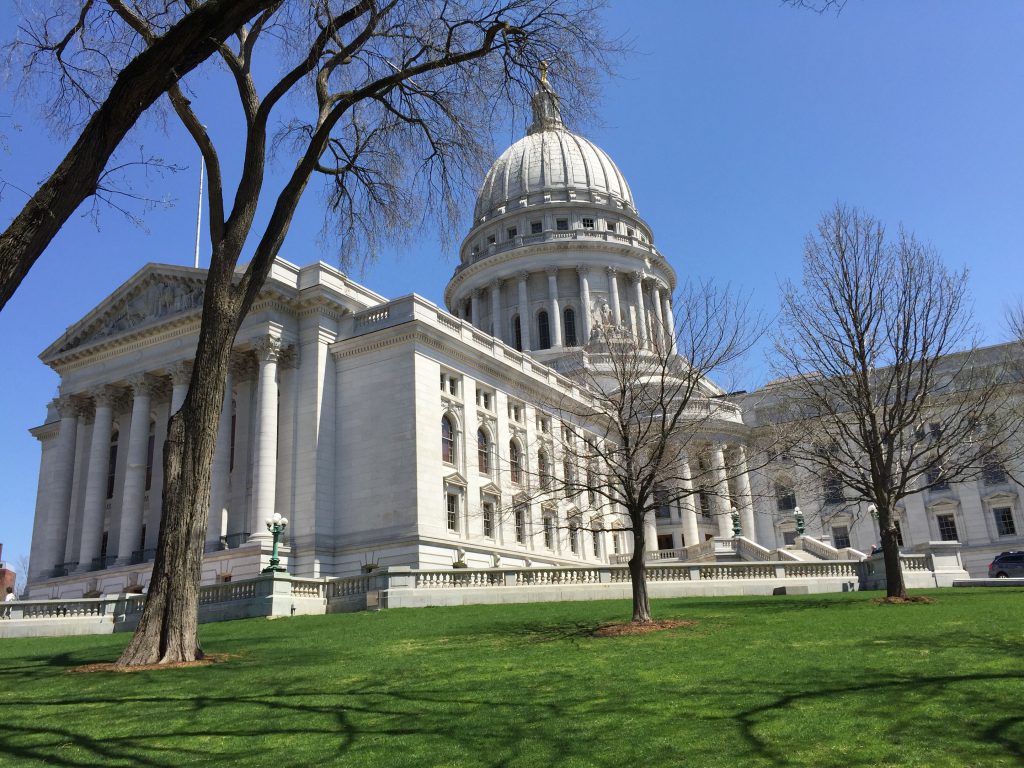Legislators Take No Action on Pandemic
Some states passing laws, funding, Vos and Fitzgerald say "no need" for Wisconsin Legislature to meet.
Where does Wisconsin stand in comparison to other states on its response to COVID-19, the coronavirus that has been declared a pandemic?
The National Conference of State Legislators (NCSL) is tracking various responses and legislation around the country aimed at combating COVID-19, noting that while the Centers for Disease Control is in charge of the nationwide response, state and local health departments are on the frontlines.
“Several states, including Hawaii, Massachusetts, Maryland, Minnesota, New York and Washington, have introduced legislation to provide supplemental appropriations to fiscal year 2020 budgets,” NCSL reports. “To date, two states have enacted legislation that appropriates additional funding for coronavirus related tasks.”
NCSL resources for state government in response to the pandemic include Continuity of Legislature During Emergency, Emergency Interim Succession Acts and State Fiscal Responses to Coronavirus (COVID-19).
Lang states that Wisconsin’s public health state of emergency, declared by Gov. Tony Evers on Thursday, cannot exceed 60 days, unless it is extended by a joint resolution of the Legislature. An executive order by the governor or a joint resolution by the Legislature can also revoke the order.
Evers said under the declaration, his administration will be able to make further resources and actions available, including allowing the Department of Health Services (DHS) to purchase and distribute medications regardless of insurance, as well as permitting support for local health departments using state funds or the Wisconsin National Guard.
Evers also indicated in his order that “a period of abnormal economic disruption is occurring in Wisconsin,” which, according to Lang, is what triggers a rule subjecting any business that sells consumer goods or services at “unreasonably excessive prices” to review by the Department of Agriculture, Trade and Consumer Protection (DATCP) and fines of up to $10,000.
Perhaps the most notable fact in the LFB memo is the amount of funding currently allocated in the 2019-21 biennial budget budget for “Public Health Communicable Disease Control and Prevention” — just $500,000 annually for DHS to distribute as “grants to control and prevent communicable diseases.”
That would likely leave Wisconsin largely reliant on federal aid.
Policy makers debate action
Speaker Robin Vos (R-Rochester) said in a statement earlier this week that the Assembly does not need convene to tackle the issue.
“There’s no need for the Assembly to come in and have politicians grandstand on the issue. If additional resources are needed, we have a process where agencies can make a request to the Joint Committee on Finance,” Vos said.
Senate Majority Leader Scott Fitzgerald (R-Juneau), agreed.
“Currently, it appears that the federal government is looking at an additional package on top of the bipartisan funding bill that passed last week. At this point, I’m unaware of any additional requests (the state Department of Health Services) has made of the Legislature,” he told the Milwaukee Journal Sentinel.
Democrats, including Senate Minority Leader Jennifer Shilling (D-La Crosse), are pushing for Medicaid expansion, saying it would cover 82,000 people currently without health insurance.
They have also publicly backed to “better prepare Wisconsin families,” including family and medical leave insurance (to support workers needing time off to care for themselves or family).
Stateline, a reporting initiative of Pew Charitable Trusts, is tracking state-by-state activity on an interactive map showing which states have COVID-19 cases and state of emergency declarations. Stateline is regularly updating reports that detail new local and state policies. “In the space of only days, they have moved to sharply curtail the routines of millions of people,” the report states.
Stateline’s most recent article asserts that there have not been such broad-based actions to combat a disease since polio in the 1950s and “not since the Spanish flu in 1918 and 1919 have policymakers had to reconcile public health concerns with the economic health of the country.”
Rep. David Bowen (D-Milwaukee) said Wisconsin should be ready to take further steps: “Many of our citizens will be affected by this, and it is time that we start having real, detailed conversations about ways in which the state can step in to help economically if the federal government is incapable of responding effectively. Paid sick leave, low-interest business loans for small businesses and independent contractors, loan, mortgage and rent payment pauses, economic stimulus; we should keep all options on the table.”
Reprinted with permission of Wisconsin Examiner.
More about the Coronavirus Pandemic
- Governors Tony Evers, JB Pritzker, Tim Walz, and Gretchen Whitmer Issue a Joint Statement Concerning Reports that Donald Trump Gave Russian Dictator Putin American COVID-19 Supplies - Gov. Tony Evers - Oct 11th, 2024
- MHD Release: Milwaukee Health Department Launches COVID-19 Wastewater Testing Dashboard - City of Milwaukee Health Department - Jan 23rd, 2024
- Milwaukee County Announces New Policies Related to COVID-19 Pandemic - David Crowley - May 9th, 2023
- DHS Details End of Emergency COVID-19 Response - Wisconsin Department of Health Services - Apr 26th, 2023
- Milwaukee Health Department Announces Upcoming Changes to COVID-19 Services - City of Milwaukee Health Department - Mar 17th, 2023
- Fitzgerald Applauds Passage of COVID-19 Origin Act - U.S. Rep. Scott Fitzgerald - Mar 10th, 2023
- DHS Expands Free COVID-19 Testing Program - Wisconsin Department of Health Services - Feb 10th, 2023
- MKE County: COVID-19 Hospitalizations Rising - Graham Kilmer - Jan 16th, 2023
- Not Enough Getting Bivalent Booster Shots, State Health Officials Warn - Gaby Vinick - Dec 26th, 2022
- Nearly All Wisconsinites Age 6 Months and Older Now Eligible for Updated COVID-19 Vaccine - Wisconsin Department of Health Services - Dec 15th, 2022
Read more about Coronavirus Pandemic here




















I would hope that a rent pause does not mean rent forgiveness program unless the banks are willing to forgo their mortgage payments!
Fatman and Robin agree: “There’s no need for the Assembly to come in and have politicians grandstand on the issue”.
Isn’t that grandstanding?